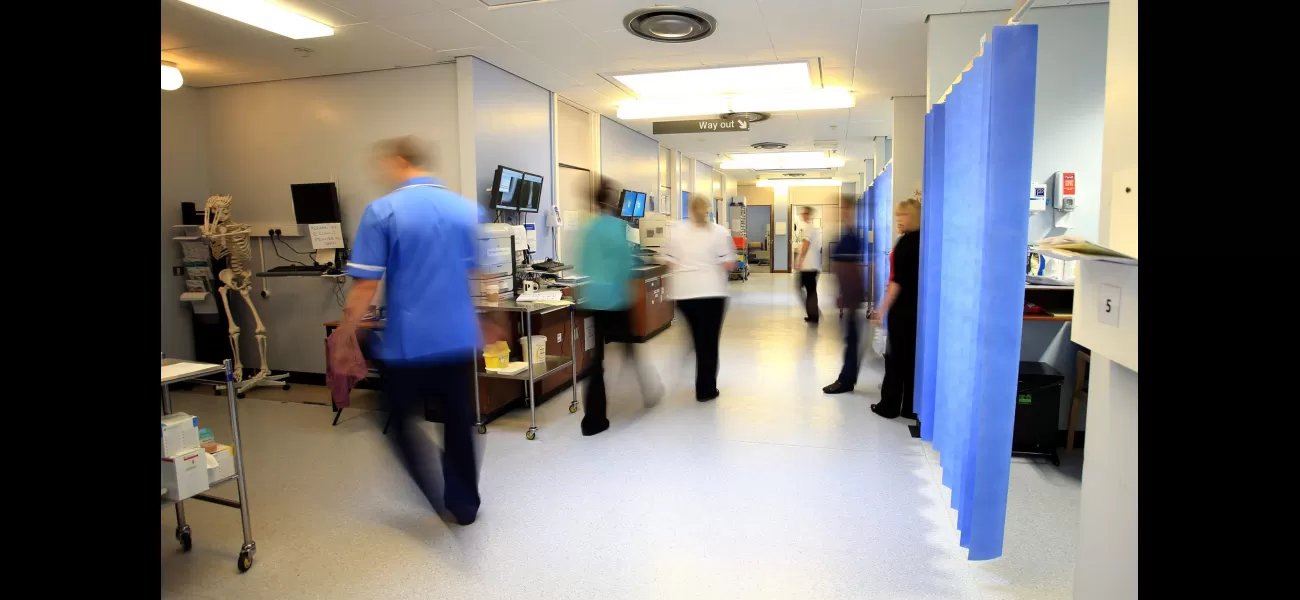Hundreds of people ready to be discharged from hospital occupy beds daily.
Delays in transport, meds, paperwork & nowhere to go lead to NHS hospital discharges being late.
July 24th 2023.

Delays in hospital discharges can have a major effect on the rest of the NHS. In June, hundreds of patients were taking up hospital beds in England despite being ready to leave. There are many reasons why discharges are delayed, such as sorting out transport, paperwork, or medication, or not having anywhere to go after leaving hospital. Disagreements between a patient and their family or medical staff, or the need to install specialist equipment in a patient's home, can also cause delays.
For the first time, figures have been released which break down the reasons for discharge delays. The analysis suggests that the biggest obstacle to getting people out of hospital beds is the lack of beds in other settings, such as care homes. Health officials have called this a 'capacity crunch' which requires 'appropriate funding'.
On average, 1,791 patients per day are unable to leave due to a lack of residential or nursing home beds, while 1,727 patients a day are waiting for a rehabilitation bed in a community hospital or a similar setting. The highest number of delays was due to resources to assess and begin care at home, with an average of 2,033 patients a day waiting.
In addition, 390 patients a day were delayed due to issues within hospitals, such as hold-ups in writing the discharge summary. Other examples included waiting for community equipment and adaptations to housing, for a therapy decision to discharge, for transport, and for medicines to take home. These delays can have a knock-on effect on other parts of the NHS, such as fewer beds for people needing treatment and handover delays leading to patients waiting inside ambulances for a bed.
Two of the most complex reasons for delays listed in the new data are where there is a disagreement between a patient, their family and the NHS about a plan to discharge, and when a patient is homeless or has no place to be discharged to. These reasons accounted for an average of 128 and 142 patients a day respectively.
The NHS is aware of the pressure that delayed discharges put on the NHS, and is working with local authorities to send more patients home when they are medically fit to leave. The Department of Health and Social Care has also invested £1.6 billion to support timely and safe discharge from hospital, on top of £700 million to ease hospital pressures over winter and purchase thousands of extra care packages and beds.
End-of-life charity Marie Curie has commented that delays to discharge can mean that people with terminal illness die in hospital when they neither want nor need to be there. They have called on the government to ensure that dying people get the care they need, and to ready the NHS for the extra pressure that an ageing population will place on it.
For the first time, figures have been released which break down the reasons for discharge delays. The analysis suggests that the biggest obstacle to getting people out of hospital beds is the lack of beds in other settings, such as care homes. Health officials have called this a 'capacity crunch' which requires 'appropriate funding'.
On average, 1,791 patients per day are unable to leave due to a lack of residential or nursing home beds, while 1,727 patients a day are waiting for a rehabilitation bed in a community hospital or a similar setting. The highest number of delays was due to resources to assess and begin care at home, with an average of 2,033 patients a day waiting.
In addition, 390 patients a day were delayed due to issues within hospitals, such as hold-ups in writing the discharge summary. Other examples included waiting for community equipment and adaptations to housing, for a therapy decision to discharge, for transport, and for medicines to take home. These delays can have a knock-on effect on other parts of the NHS, such as fewer beds for people needing treatment and handover delays leading to patients waiting inside ambulances for a bed.
Two of the most complex reasons for delays listed in the new data are where there is a disagreement between a patient, their family and the NHS about a plan to discharge, and when a patient is homeless or has no place to be discharged to. These reasons accounted for an average of 128 and 142 patients a day respectively.
The NHS is aware of the pressure that delayed discharges put on the NHS, and is working with local authorities to send more patients home when they are medically fit to leave. The Department of Health and Social Care has also invested £1.6 billion to support timely and safe discharge from hospital, on top of £700 million to ease hospital pressures over winter and purchase thousands of extra care packages and beds.
End-of-life charity Marie Curie has commented that delays to discharge can mean that people with terminal illness die in hospital when they neither want nor need to be there. They have called on the government to ensure that dying people get the care they need, and to ready the NHS for the extra pressure that an ageing population will place on it.
[This article has been trending online recently and has been generated with AI. Your feed is customized.]
[Generative AI is experimental.]
0
0
Submit Comment





